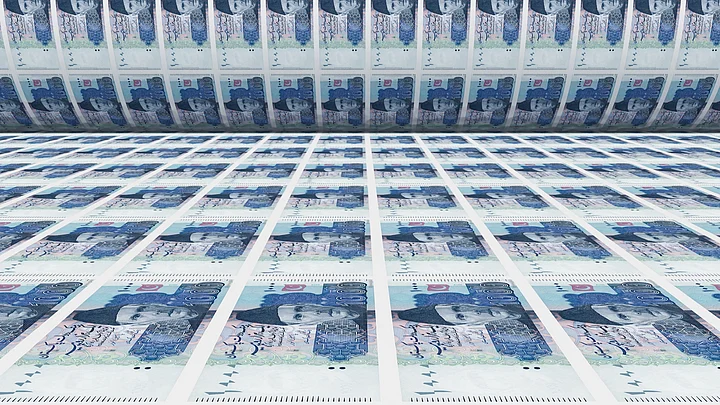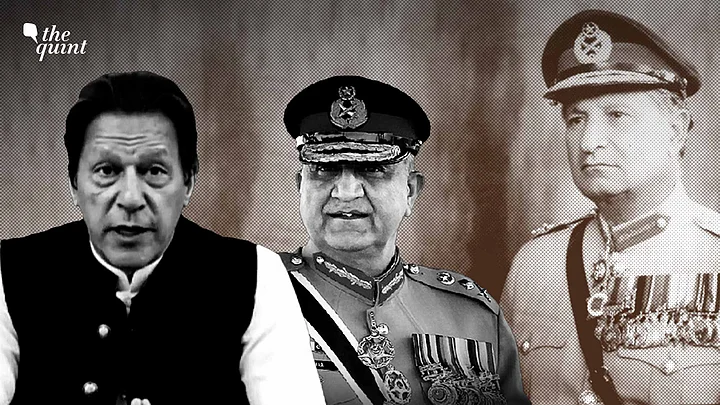"Let me assure you that nobody is going to compromise anything on the nuclear or the missile programme of Pakistan... Nobody has any right to tell Pakistan what range of missiles it can have and what nuclear weapons it can have. We have to have our own deterrence...We represent the people of Pakistan...and we have to guard our national interests."
This was how Pakistani Finance Minister Ishaq Dar was responding in the Parliament to the Opposition demanding an account of some rumours that had circulated over the past few days – that is, that the International Monetary Fund (IMF) would ask Pakistan to reduce its defence spending in general and its nuclear programme in particular.
These rumours have also been officially denied by the IMF itself, who declared recently: “There is absolutely no truth to this or any insinuated link between the past or current IMF supported programme and decision by any Pakistani government over its nuclear programme," but nonetheless have cast a shadow over the troubled issue of yet another financing (the thirteenth) requested by Islamabad to get out of imminent bankruptcy.
'Status of Pakistan's Nuclear Weapons'
Pakistan is in dire need of US dollar inflows to avoid failing to repay nearly USD 80 billion in international loans over the next three and a half years.
Not only that, Islamabad also needs USD 6 billion in new loans to bridge the financing gap, but Saudi Arabia has refused to extend yet another loan while the United Arab Emirates (UAE) and Qatar are turning a deaf ear.
China will not provide any official backing, but in the past few weeks, Chinese banks have refinanced USD 1.2 billion in commercial loans and another USD 500 million is already on the way, meaning Islamabad is getting deeper and deeper into China's 'debt trap'.
Truth is, since the economic crisis broke out in 2022, there has been speculation about the status of Pakistan's nuclear weapons. And this is not the first time.
Whether the nuclear weapons are safe in Pakistan’s hands is a question that was earlier raised during the two-decade long War on Terror, when the terrain was rife with all kind of terror groups.
Moreover, the ghost of nuclear power in the hands of terrorists is more or less waved by Islamabad whenever the government finds itself in a corner, and it always works.
So much so that recently CENTCOM commander General Kurilla had to reassure the US Senate about the security of Pakistan's nuclear apparatus. The fact is that the so-called international community sees Pakistan's defence expenditure as unjustifiable under the current economic situation.
'Nukes Count More Than Citizens' Welfare in Pakistan'
Pakistan has developed the Shaheen-III long-range nuclear missile that can strike at 2,750 km–covering most of India and parts of the Middle East. Senior Pakistani politicians have referred to pressure from Western countries regarding its long-range nuclear missiles which have the capacity to hit Israel.
But the army refuses to rein in the very expensive defence programmes that eat up a large part of the country's public budget, while the government asks for aid to feed the population and provide essential supplies.
In December, Pakistan recorded 24.5 percent inflation, the second worst in Asia after Sri Lanka. Prices of onion rose over 500 percent, to Rs 220.4 a kg from Rs 36.7 a year ago. The cost of other food items like rice, pulses, and wheat has also increased by nearly 50 percent in a year.
Diesel prices went up by 61 percent and petrol prices by 48 percent. In the past week, the media reported long queues and almost a stampede to buy flour, a staple which has nearly disappeared from the markets.
But in Pakistan, as usual, missiles and nuclear weapons count more; much more than the welfare of citizens. The army has no shortage of anything.
On the contrary, they are the biggest business conglomerate of the country, which employs nearly three million people on its payroll and has an annual revenue of over USD 26.5 billion.
'Starving, Yet We Have the Bomb'
Askari Bank and Fauji Foundation, which are just two among the hundreds of these ventures, generate more than USD 10 billion of wealth annually. They are the biggest real estate developers in Pakistan, having over 50 different housing projects across the country: each one of them is spread over several thousands of acres.
DHA Islamabad is spread over 16,000 acres while DHA Karachi is over 12,000 acres. They are also the biggest fertilizer and cement manufacturer of Pakistan – the Askari Bank, which is among the top five banking institutions of the country, is owned by them, and they are also the biggest player in wind and solar energy.
Besides, they also own mines, several commercial healthcare facilities, and a large network of schools and colleges across the length and breadth of Pakistan.
The cherry on the top is that they're even being handed over, by the caretaker government of Punjab, circa 45.300 acres of land for 'Corporate Agricultural farming'.
The politicians can always go to their apartments in London and use their foreign bank accounts. And the rest of the country? Well, Zulfikar Ali Bhutto gave the solution many many years ago: they can go on starving or eating grass, but they can proudly say: We have the bomb.
(Francesca Marino is a journalist and a South Asia expert who has written ‘Apocalypse Pakistan’ with B Natale. Her latest book is ‘Balochistan — Bruised, Battered and Bloodied’. She tweets @francescam63. This is an opinion piece and the views expressed are the author's own. The Quint neither endorses nor is responsible for his reported views.)
(At The Quint, we question everything. Play an active role in shaping our journalism by becoming a member today.)


